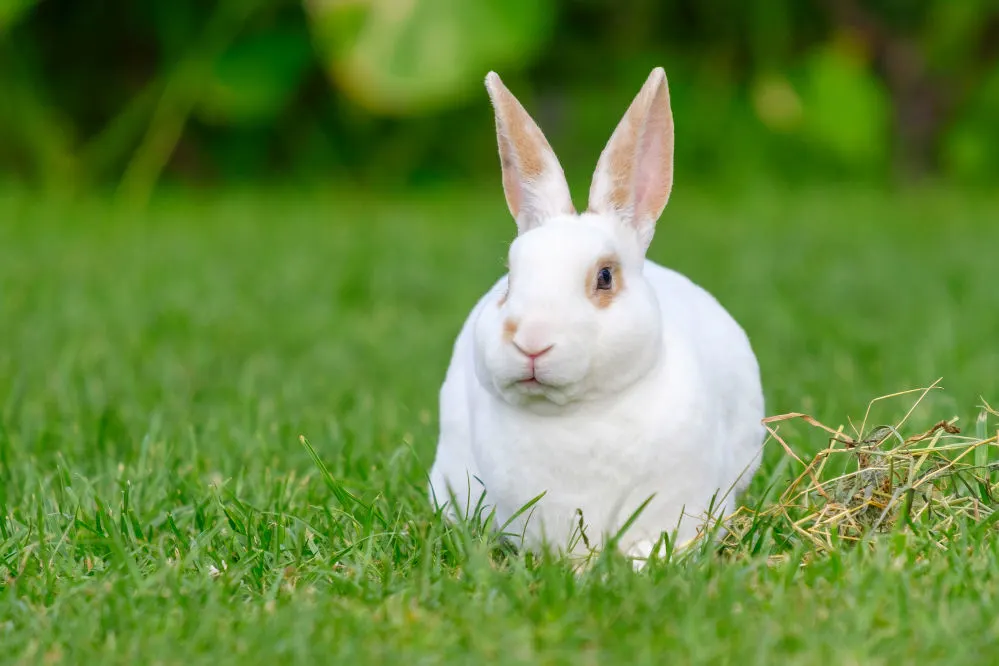As a pet owner, thinking of new ways to spice up your bunny’s diet is fun. It makes sense that you would want to give them a tasty treat you think they’d enjoy. So, you see your bunny sniffing around your pup’s bowl filled with kibble. But can you feed your rabbit dog food?
The simple answer is no. No matter how many rabbit breeds are out there, they have specific dietary needs that dog food does not cater to.
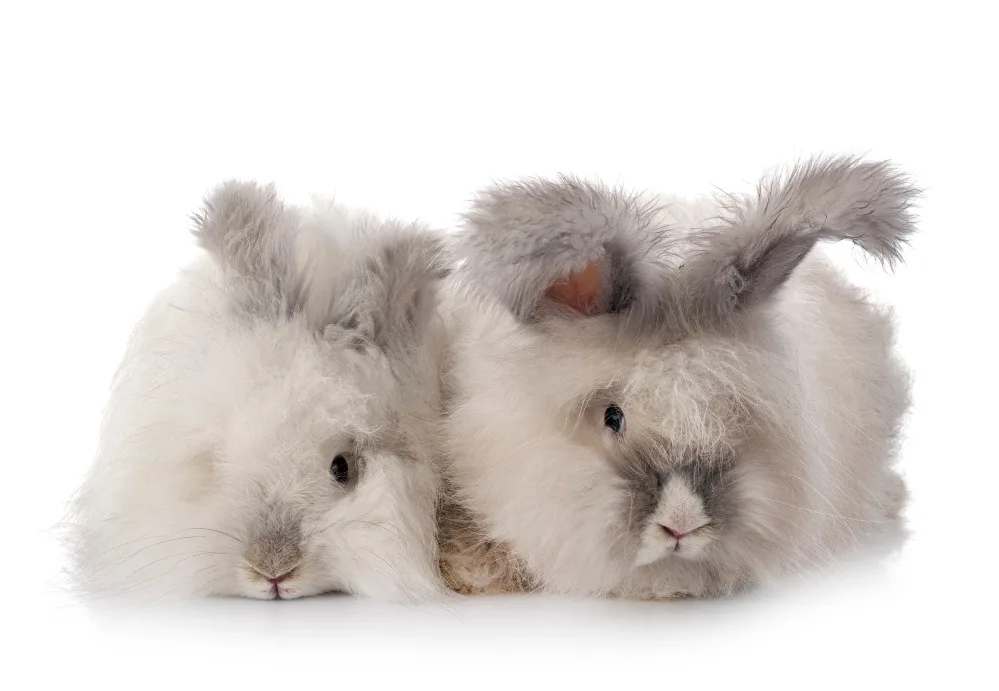
So, if you are wondering why dog food is bad for your furry friend, then read on. This guide has everything you need to know about dog food for your rabbit and what will benefit your bunny in the long run.
Can I feed my rabbit dog food?
As has already been established, rabbits shouldn’t be given dog food. It only makes sense, right? Dog food is formulated for dogs’ needs, and rabbit food is formulated for their needs. However, it is easy to wonder if their food can be used interchangeably.
Sure, small quantities of dog food shouldn’t significantly affect your rabbit’s health. However, that doesn’t mean you should give it to them.
Long story short, you should not give your rabbit dog food. Whether it be dry food or wet food, these can lead to a plethora of issues with their health – ones that can be easily avoided.
Why rabbits shouldn’t eat dog food
Now that you know rabbits shouldn’t eat dog food, you must wonder why? Well, let’s think about it this way – dogs are omnivores. They eat both meat and plants. Rabbits, on the other hand, are herbivores and only eat plant material.
A rabbit’s digestive system isn’t built like a dog’s, so it makes sense that they can’t ingest the same foods. Dog food, as it were, contains a lot of meat and protein – which can lead to several digestive issues for a rabbit, including diarrhea and discomfort.
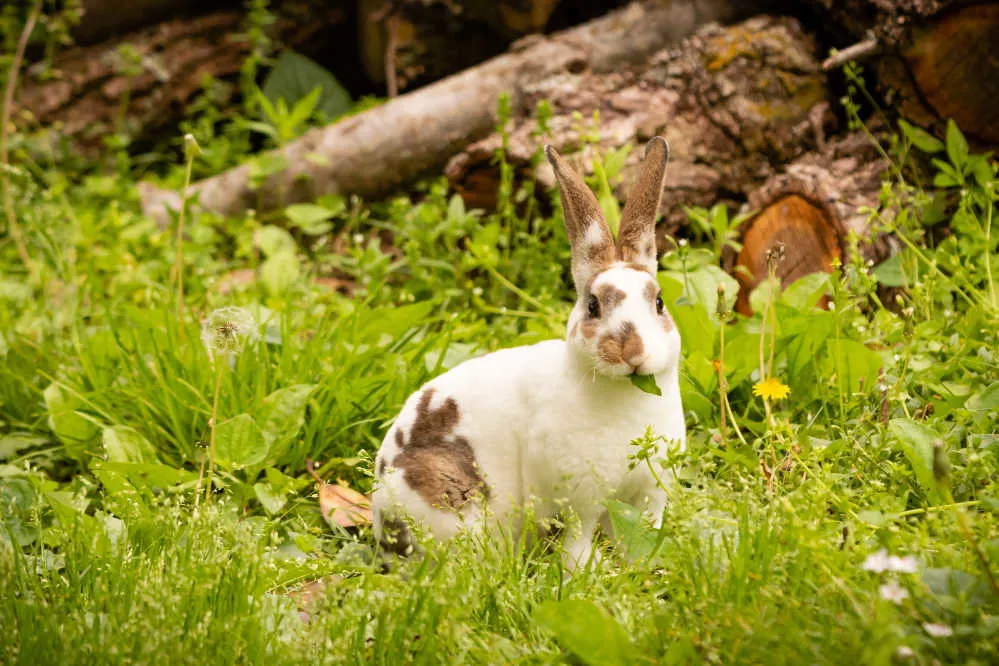
Your pet rabbit’s nutrition needs are vital to consider, and protein in high amounts in your rabbit’s diet can lead to more than just stomach pain. Too much protein could result in enteritis, a bacterial infection, and inflammation of the small intestine. You definitely wouldn’t want your furball suffering from that.
Excess protein in dog foods can also cause severe intestinal blockages, which your poor bunny would struggle greatly to digest, especially because bunnies can’t vomit if they need to. Dog food also has no nutritional value for a rabbit, so what good will it do?
Rabbits need plenty of fiber, which dog food doesn’t have. The lack of fiber can then lead to GI stasis, a gastrointestinal disease in rabbits. They also require less protein, carbohydrates, and fat, which dog food has plenty of. Do you see where this is going?
Not only is dog food not nutritious enough, but it could lead to an obese rabbit, creating a plethora of other health conditions, including heart disease.
The risks far outweigh the pros of giving this to your rabbit as an occasional treat.
Why can’t rabbits have dry dog food?
Dog kibble is bad for rabbits for all the reasons above, but it also has unique risks. You know how rabbits love to gnaw on things, right? They will obviously want to nibble on dog food, but what is so wrong with that?
Well, dog food is crunchy, very crunchy. The sharp teeth of canines make it easy for them to eat, but rabbits have no such luxury. Eating that hard dog food will only damage your rabbit’s teeth in the long run, leading to dental problems.
That’s not even including that these chunky bits of food can be a choking hazard for your bunny, especially if they struggle to chew it into smaller pieces.
So, even if you aren’t actively feeding your bunny dog food, you should keep an eye on them, especially if your rabbit hops around near the dog’s bowl.
Why can’t rabbits have wet dog food?
On the other end of the spectrum, you have wet food. Contrary to the extreme hardness of dry dog food, wet dog food is too mushy and soft for rabbits. Rabbits need some resistance when chewing, as it helps maintain the health of their teeth.
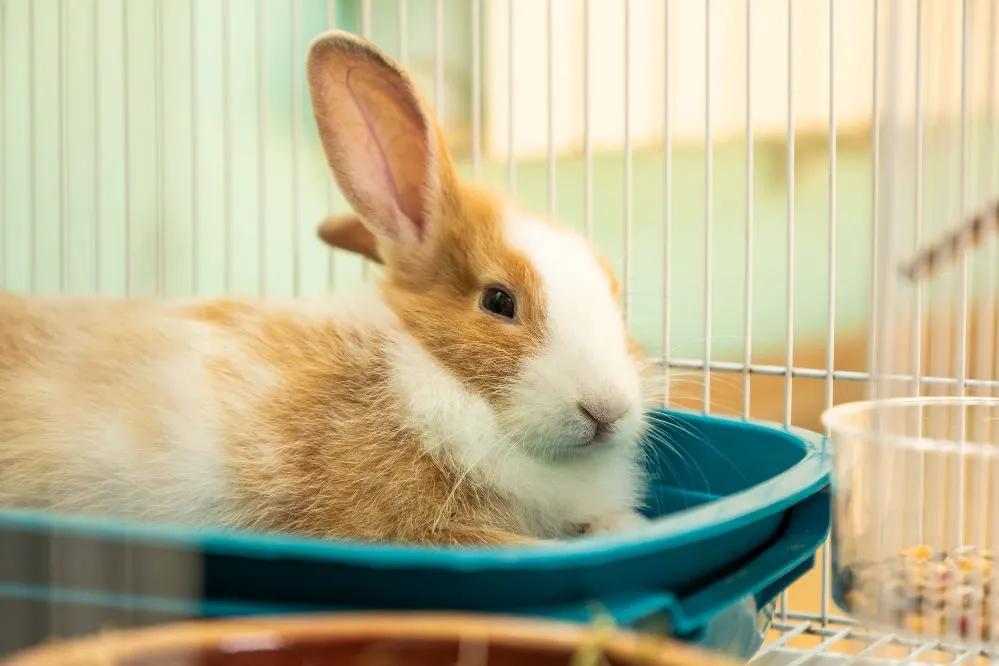
Not only that, but wet dog food will most likely lead to your rabbit developing an upset tummy and discomfort. So, keeping your rabbit away from it all together is best. Better safe than sorry.
What should I feed my rabbit instead?
Don’t fret – if you’re wondering what to feed your rabbit, this section has got you covered. Instead of giving your rabbit dog food, here are the actual requirements of their diet and the best feeding options.
The majority of your rabbit’s diet should consist of plenty of fiber, fresh vegetables (and leafy greens), fresh hay and grass, and plenty of clean water. Generally, an indoor rabbit’s diet should resemble a wild rabbit’s as much as possible, so hay and grass are essential.
Good quality hay will give your rabbit the fiber they need to remain sustained and give them the little bit of resistance they need when gnawing on their food. So, consider varieties like alfalfa hay or timothy hay, which are both great options, although alfalfa tends to be better for younger rabbits.
The same goes for those tasty vegetables. Adult rabbits benefit greatly from leafy vegetables like romaine lettuce. Root vegetables and some fruits also offer excellent benefits, so don’t be surprised if your bunny loves squash.
Rabbit pellets are also an excellent choice to add variety to their diet. They are basically the bunny equivalent of dog food and are formulated to be safe and delicious for your small friend.
Can a rabbit eat dog food? | Final thoughts
There you have it – everything you should know about dog food and rabbits. At the end of the day, it is nice to want to add some variety to your bunny’s diet, but dog food is not the best option.
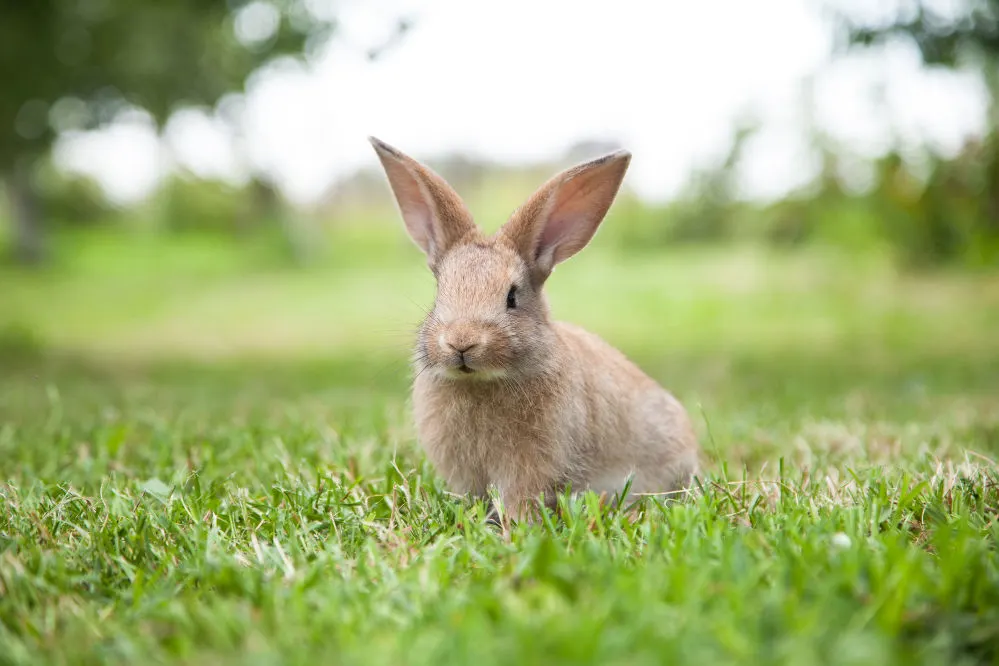
Dog food isn’t made with your loveable rabbit in mind and can lead to many health issues you’ll want to avoid. Instead, ensure your rabbit has all the fresh and delicious hay, veggies, and occasional fruits they could need. They will undoubtedly be better off.
With that settled, have you ever wondered how big Flemish Giants get? If so, this is a great place to start.
Steph Dyson is a travel journalist by trade but a lover of all small pets. She’s been a pet mum to everything from gerbils to guinea pigs, rabbits to hamsters, and fish to dogs of all shapes and sizes. She wants to share her years of experience with small pets and make Small Pet Guides the go-to website for pet owners seeking information and care advice.

